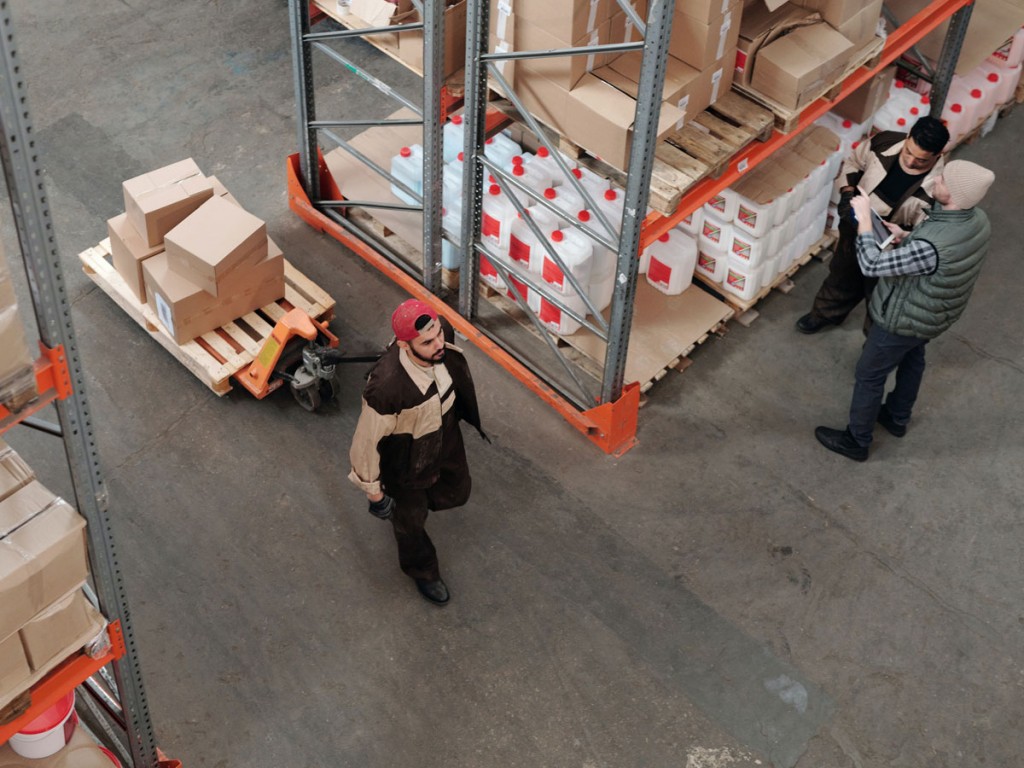The year 2020 has been one of the most unpredictable years for companies worldwide. Navigating the current global consumer market is a great challenge. Customer expectations are higher than ever before, which puts enormous pressure on supply chains, whose role is essential in every industry. Companies worldwide are under pressure to embrace new technologies to stay competitive and consistently deliver exceptional service. Due to rapid globalization, the supply chain is becoming more and more complex. The role of IoT in the global supply chain is already a significant one, and this trend is expected to continue in the coming years.

Supply Chain 4.0
As mentioned, this year has been exceptionally challenging for the supply chain on a global scale. The coronavirus pandemic has disrupted it on a global scale, forcing logistics companies to take fast action to keep driving growth. Advanced technology, including IoT, has been their primary asset through these difficult times.
The Internet of Things (IoT) is a system of smart interconnected devices that are able to collect and exchange data over the internet without human intervention. IoT sensors are an essential part of Industry 4.0.
Alt: Internet of Things (IoT).
IoT is revolutionizing global supply chain
In 2020, Industrial IoT (IIoT) devices have had a significant impact on logistics operations. A growing number of logistics companies are embracing IoT-powered fleet management technology, which is one of the most notable changes. Using the right IoT sensors allows companies to receive data on vehicle movement in real-time and share it with the other parties.
Thanks to fleet management technology, logistics companies that have large fleets are able to manage their vehicles with a higher level of safety and sustainability. By installing one IoT sensor in a vehicle, they can track acceleration, speed, location, engine status, and other valuable variables. For example, this data can show when vehicles are idling longer than usual. Fleet management tech can also reduce fuel usage.
Furthermore, thanks to IoT sensors, logistics companies can have a bird's-eye view of their supply chain. This is how IoT fleet management platforms informed logistics companies on the impact of COVID-19 on the supply chain when the pandemic was still in its early stages.
As the health crisis spread and reached higher severity levels, a sudden and radical change in demand ensued. Customers' habits changed practically overnight. As a result of the newly-introduced measures to prevent the spread of the virus, the demand for essentials, especially non-perishable food and hygiene products, skyrocketed, while the demand for luxury items plummeted. IoT devices provided valuable data that helped customers understand what was happening to the supply chain and make better purchasing decisions.
The role of IoT in global supply chain will likely grow
The integration of IoT systems has brought many changes to supply chain management (SCM). IoT's role in the global supply chain and logistics is already very significant, and it's likely to become even greater. Many retail and manufacturing businesses have already started modernizing their supply chain operations with Industry 4.0 technologies such as IoT, AI, cloud, etc.
The modernization of the supply chain will definitely continue throughout the rest of 2020. Many warehouse owners will likely be pushed to adopt smart warehousing solutions in the coming months. For example, IoT will probably change how warehouses are lit. A wireless IoT switch may be used to control energy-efficient LED lighting in warehouses remotely.
IoT can also facilitate in-warehouse tracking. With the right technology, customers can easily track their shipments as they move through the supply chain in real-time. Companies can also better track assets while they are in the warehouse, thanks to Radio frequency identification (RFID) tagging systems. RFID tagging systems prevent asset loss and improve the efficiency of the warehouse. With the growing number of IoT devices in warehouses, warehouse owners could also be pressured to implement IoT management platforms in order to manage and maintain their IoT devices.
Finally, IoT may also enhance data transparency across the supply chain. All involved parties, including the customers, will know where shipments are at any moment thanks to data received from tracking systems used on the road and in the warehouse. This type of technology can help moving service providers, such as High Quality Moving Company, protect their customers' belongings and improve customer experience.

To sum up
The role of IoT in the global supply chain in 2020 is fast-growing. The benefits of IoT adoption in the supply chain and logistics are numerous. The introduction of new fleet management technology allows tracking the movement of goods across the supply chain using IoT sensors. IoT is also used to optimize fleet management. It helps companies find better route options and reduce vehicle idling, as well as fuel usage. IoT has enormous potential, and its impact will likely grow in the coming years. Smart warehouse technology, like IoT-powered asset tracking, will become more commonly used. This new technology will enhance information transparency across the supply chain and improve the customer experience.







